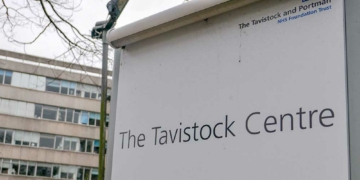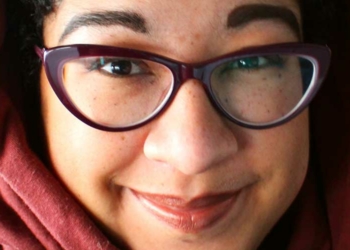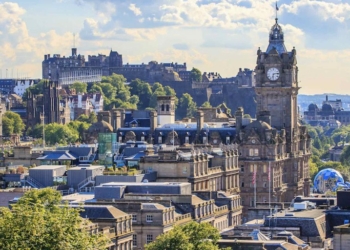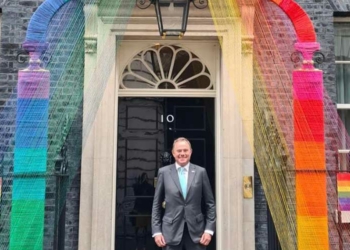Even those who squirm at the notion of patriotism can feel proud of Britain’s most successful brand, the BBC. Lord Reith, the first Director General, put a commitment to ‘educate, inform and entertain’ the public at the heart of the BBC’s mission; values which have never been more needed than in today’s post-fact, information-saturated world.
The culture wars have seen the public hunkering down behind the battlelines of the Guardian or Times; this should’ve been a gift to the corporation, a justification for the licence fee in an age of free media. Instead, in a misguided attempt to appeal to a younger audience, the BBC began to champion the causes of the woke left. It seems in their eagerness to wrap themselves in rainbows and glitter, the BBC neglected to notice the underlying ideology of causes masquerading as human rights. With an arrogance unbefitting to such a venerable organisation, there has been a shift from providing information to open indoctrination.
The recent appointments of three right-leaning figures (Richard Sharp as chair, Robbie Gibb to the board and Tim Davie as Director General) is no accident, they are part of an attempt to prick the sanctimonious, Guardianista BBC bubble. The left-leaning press have been in spasm over the shift to the right at the top of the corporation; Tim Davie has been criticised for suggesting employees should avoid “public demonstrations or gatherings about controversial issues”, which has been interpreted by some as referring to Pride and BLM marches. But with 417 employees identifying as transgender, Stonewall training rolled-out across the organisation and internal memos advising staff to include ‘pronouns’ in their email signatures, dragging the BBC back to the neutral no-man’s land will be a struggle.
At 98, dear old Aunty Beeb is having a later life identity crisis; but the problems faced run deeper than the tick-box criteria its staff meet, the problem is a lack of ideological diversity.
Ironically, in an attempt to address the over-representation of middle-class Oxbridge graduates, the BBC recently introduced yet another target (alongside those which already exist for LGBTQIA+, BAME and disabled people). Potential employees will now be asked about their socio-economic background; this is surely the sort of clueless attempt at cultural engineering that only an Oxbridge elitist would think a good idea. At 98, dear old Aunty Beeb is having a later life identity crisis; but the problems faced run deeper than the tick-box criteria its staff meet, the problem is a lack of ideological diversity.
The BBC is quite content to exclude those it deems to have problematic opinions. This month BBC Woman’s Hour, a programme one might expect to cover women’s sex-based rights, dropped an interview with Maya Forstater. Forstater is a campaigner who has taken her former employer to court after she lost her job for expressing her belief that sex cannot be changed, the case is at the centre of a national debate on freedom of speech and women’s rights. Instead, Woman’s Hour ran a segment on sharing bath water. Tellingly, just two weeks prior to this Woman’s Hour included an interview with nail technician and transgender activist Charlie Craggs; Craggs has been scornful of feminists like Forstater.
It is in coverage of issues pertaining to the lives of lesbians, gays and bisexuals where this deeply-ingrained bias is most apparent. One might, for example, imagine that the BBC would be keen to cover the case of Allison Bailey, a lesbian barrister who is in the process of suing both her employer and Stonewall. On the day when her case was launched, the BBC’s then LGBT correspondent Ben Hunte was posting on social media about the fun he’d had interviewing Abigail Thorn, a philosopher who identifies as trans and has a YouTube channel. It perhaps should come as no surprise Hunte opted to ignore the case against Stonewall, having hosted the Stonewall ‘Equality Dinner’ at the Sheraton Grand on Park Lane in 2019.
With the exception of a few brave journalists at Newsnight, most notably Hannah Barnes and Deborah Cohen, the BBC have allowed themselves to become a propaganda mouthpiece for transgender lobby groups.
With the sideways move of Ben Hunte from LGBT Reporter to West Africa Correspondent there were hopes that balance might be restored. So far reports from BBC News political reporter Jessica Parker, Hunte’s replacement, have not represented the concerns of groups like the LGB Alliance, Lesbian Rights Alliance or Thoughtful Therapists with regard to the proposed ban on conversion therapy. Instead, the debate has been characterised as ‘monolithic, vulnerable queers versus angry, religious nutters’ with no acknowledgement of the diversity of opinion from those who are same-sex attracted.
With the exception of a few brave journalists at Newsnight, most notably Hannah Barnes and Deborah Cohen, the BBC have allowed themselves to become a propaganda mouthpiece for transgender lobby groups. BBC commissioned programmes including ‘Just a Girl’, ‘First Day’ and ‘I am Leo’ explicitly referred to organisations including Mermaids, Press for Change and Gendered Intelligence as sources of expertise.
As many on the left have done, rather than looking at the evidence the BBC opted to jump on the transgender train believing it to be the next civil rights struggle. The conflict between sex-based rights and those based on gender identity has been overlooked as politically inconvenient, and the BBC has steadfastly refused to give a voice to the growing numbers seeking to separate the LGB from the T. To the BBC, lesbians, gays and bisexuals are fine, so long as we’re dressed in drag and lip-syncing from the woke hymn sheet. When we step out of line, and dare to have unwoke opinions we are simply ignored.
To the BBC, lesbians, gays and bisexuals are fine, so long as we’re dressed in drag and lip-syncing from the woke hymn sheet. When we step out of line, and dare to have unwoke opinions we are simply ignored.
The BBC has been gripped by institutional group think before, though in the past this was at the hands of the authoritarian centre right not the identity-obsessed left. From 1933 until the late 1980’s staff were vetted to ensure they weren’t a security risk; there was a fear that if those even just associated with the far left were allowed to join the BBC “the way could be made clear for a left-wing government”. Members of Communist Party of Great Britain, the Socialist Workers Party, the Workers’ Revolutionary Party and the Militant Tendency were kept under suspicion, and the BBC worked closely with MI5 to filter-out undesirable candidates. Those deemed to pose a security risk had their personnel file marked with a Christmas tree, an apparent reference to the carol ‘O Tannenbaum’ which shares a tune with the socialist anthem ‘The Red Flag.’
According to broadcaster Paul Gambaccini, the Christmas tree symbol was also used to identify suspected homosexuals: “All I know is what I was told in the late Nineties that my file has the Christmas tree on it and the producer of Kaleidoscope told me that this was what it meant – that the BBC thought I was camp as Christmas,”
The reputation the BBC has on the global stage as offering high quality, impartial journalism is unparalleled. But should the BBC continue to arrogantly assume the role of educating the unwashed masses and ignoring the viewpoints it deems politically inconvenient, it will erode the trust built up over nearly a century of reporting. When one looks at the coverage of the culture wars in the US it is sharply divided between frothing shock jocks of Fox News, and the soft-focus gushing of CNN it becomes apparent just how important the BBC is. I wouldn’t want to be where Richard Sharp, Robbie Gibb and Tim Davie are; sitting at the top of a precarious institution and hoping common sense will trickle down before political pressure knocks it down.
























Comments
No comments yet, be the first to leave a comment.